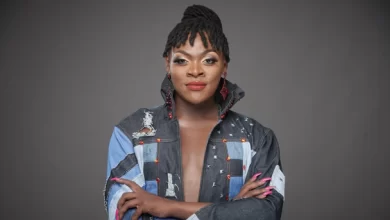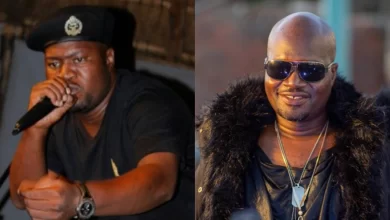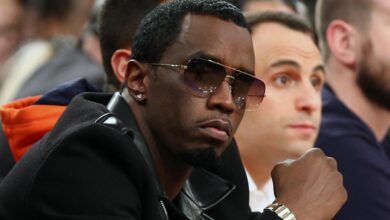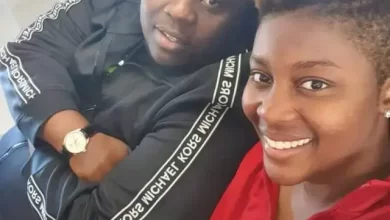Sjava’s story: From nobody to award-winning rapper with healing powers
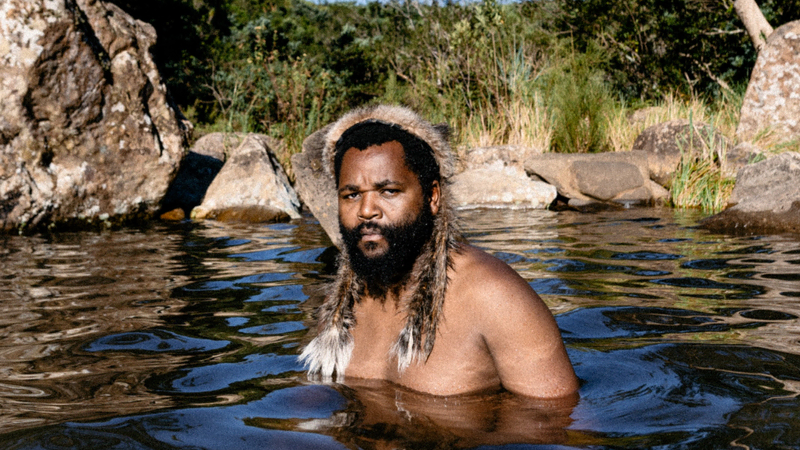
Sjava’s music is made to be listened to. You can’t just gloss over it or consume it inattentively while it plays in the background.
So it only made sense that a day before the release of his new album, “Isibuko”, the BET Award-winner curated an invite-only listening session at Circa Gallery in Rosebank that allowed you to really experience the music.
As we walked into the gallery, we were given headphones through which we would hear the music with optimal clarity and listen to Sjava talk us through the music.
It worked perfectly – the music played without interruption, and there were minimal distractions throughout the session. We were immersed in the music.
“Usually, when you do these things, there’s noise, and people are not focused,” Sjava explained when we spoke the next day.
them to have their own headphones and listen properly. For me, it’s also about the production and making it an experience.
“Mentally, when you go to a gallery, you always approach it like this is a quiet space. But if I say it’s in the club, already mentally, you’re in that space.”
After arriving on the national scene with his stellar debut album “Isina Muva”, Sjava truly established himself as a tier-one artist in 2018 with the release of his sophomore album, “Umqhele”.
After fighting to gain the recognition he deserved for years, Sjava, who was 33 at the time, went on to win several awards, work with Kendrick Lamar on the “Black Panther” soundtrack album, and establish himself as one of the most uniquely talented acts on the continent.
With all the success that came with that album, I asked him if he felt any pressure to outdo it this time around.
“There’s no way I can do that to myself, because if I did that from the jump, there was never gonna be a second album.
Because after “Isina Muva”, people were saying, ‘You’ll never make another album like this again’, but I’m like, that’s true because I’m not trying to make an album like this one again.”
Sjava adds that what people need to understand is with the music it’s really about what’s happening in your life and how you feel at that period.
“What you hear on that album, that’s my past three years. So if you listen to “Isina Muva”, the only thing I didn’t have is money, but I was happier. No one was hating on me because no one knew who I was. No one wanted anything from me because I didn’t have anything.
READ ALSO: Queen Lolly Apologizes To Mseleku Family But…
“I was just making music with my friends, Emtee and them. So with that music, you can hear that the vibe was free.
“Then with ‘Umqhele’, when you get to understand the vibe, the topics, the things that are happening, your voice changes because you grow as a person, so it will never be the exact same thing.
“So, for me, I sat down, and I said at the end of the day, I can’t force to make the same album because it was a success and people loved it. No, I’ll make what I feel. That’s why all these albums aren’t the same.”
Sjava speaks at length and in detail about his music, making sure to give detail and clarity. The passion he has for his music oozes out of him. And as a listener, you can feel it.
Since its release in late January, the album has been charting on radio and has already accumulated well over 10 million streams across various digital streaming platforms. It looks on pace to be his most successful album yet.
“Isoka”, which features Q Twins and Mzukulu, has been a particular fan favourite.
“Amavaka” and “Grounding” are also showing the potential of becoming major hits this year if he chooses to push them as priority singles at some point.
Throughout the course of his career, fans have often lauded Sjava’s music for how it helps them cope with life’s inevitable trials and tribulations.
This album has been no different – one fan tweeted, simply: “Listen to Sjava for healing.”
Another added: “Sjava’s music is so soothing and healing it should be sold in pharmacies. When I mention this to him, he’s quick to point out that the message doesn’t come from him. It’s something he considers God-ordained.”
“I used to rap a lot,” he says. “We used to travel for cyphers, we’ d go to Mpumalanga and Newcastle, and we’d rap the whole night. But then something came to me like, ‘Yo, sing’. And for me, when I started singing, that’s when I was able to talk about so much.”
With rap, Sjava considered his reach limited.
“It was just about rhyming, metaphors, buzz. But at the end of the day, there was nothing that someone could take home.
It was nice in the moment, but it was not something that someone can wake up, listen to, and it motivates them to go through a hard day.”
But when he started singing, some of his friends stopped talking to him and described him as soft.
“I was like, I’m sorry, but with this singing, I’m able to reach more lives. I’m able to pass a proper message to the people, young and old. I’ve focused on singing since then.”-IOL



